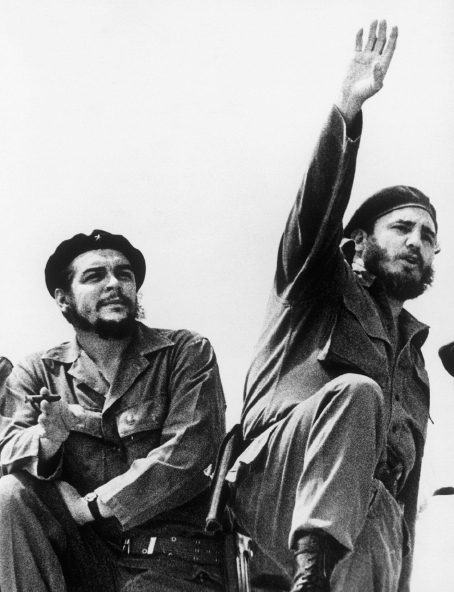Understanding World Societies:
Printed Page 976
> Why did populism emerge as such a powerful political force in Latin America?

Che Guevara (left) and Fidel Castro (right), whose successful revolution in Cuba inspired armed movements across Latin America. (© United Archives/Topfoto/The Image Works)
IIN THE DECADES AFTER THE SECOND WORLD WAR , Latin American nations struggled to find a political balance that integrated long-